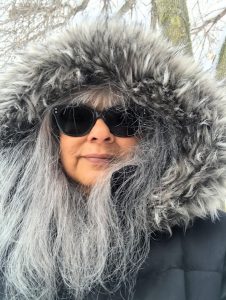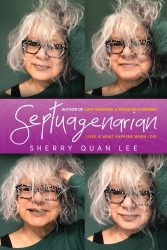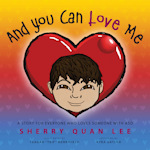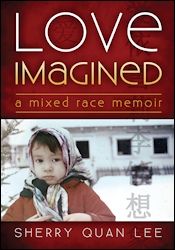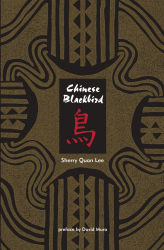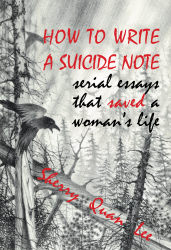Not Good or Bad, better
Not Good or Bad, better
Some of us, particularly American Blacks, grew up with the saying, you’ve got to work twice as hard. Perhaps that was the only way those of us who have been invisible (looked away from) could be seen. (I worked twice as hard in graduate school, I earned a 4.0 grade point average, but it didn’t earn me visibility; not even as I pointed fingers and called out.) If I don’t work twice as hard, am I twice as bad? Writers, who have been taught as people we aren’t good, work twice as hard to prove to ourselves we are, so we can prove to others that our writing is good. I tell my students not to think good or bad, just better.
A friend said, “We have to work twice as hard to be equal.” And, yes, that’s been part of my life’s journey, my writing journey-working twice as hard. But it’s time to dispel the myth. Time to ease up on ourselves. Stop letting this age-old adage convince us that we’re not equal. Time to let our self-esteem soar. It’s time we are confident in ourselves and our writing ability. It’s time for us to work less hard (don’t get me wrong, writing is hard work, but it shouldn’t be heart breaking), and to believe we are equal, even in a society that continues to treat us like we’re not, even as we continue to prove that we are.
Our responsibility as writers, James Baldwin wrote (“The Creative Process, 1962):
“Perhaps the primary distinction of the artist is that he must actively cultivate that state which most men, necessarily, must avoid; the state of being alone. That all men are, when the chips are down, alone, is a banality — a banality because it is very frequently stated, but very rarely, on the evidence, believed. Most of us are not compelled to linger with the knowledge of our aloneness, for it is a knowledge that can paralyze all action in this world. There are, forever, swamps to be drained, cities to be created, mines to be exploited, children to be fed. None of these things can be done alone. But the conquest of the physical world is not man’s only duty. He is also enjoined to conquer the great wilderness of himself. The precise role of the artist, then, is to illuminate that darkness, blaze roads through that vast forest, so that we will not, in all our doing, lose sight of its purpose, which is, after all, to make the world a more human dwelling place.”
When we write we exist in our own small world, even as we contemplate the world at large. We can shut out the naysayers and just write. We can shut out the rule makers, and just write. I tell my students there are no rules; there is craft, but it’s up to you to be creative.
Carole Maso wrote Break Every Rule (Counterpoint 2000):
“If the creation of literary texts affords a kind of license, is a kind of freedom, dizzying, giddy—then why do we more often than not fall back on the old orthodoxy, the old ways of seeing and perceiving and recording that perception?”…
“If we joyfully violate the language contract, might that not make us braver, stronger, more capable of breaking other oppressive contracts?”…
“Might writing by women, by people of color, by gay men and lesbians be an active refusal of the dominant code, a subversion of meaning as it has been traditionally constructed…”
I don’t write every morning before the sun rises. Not going to happen. I also don’t write every night before I go to bed. Not going to happen. But I am going to write, it is my responsibility, not my “luxury.” Audrey Lorde wrote (“Sister Outsider: essays and speeches,” Crossing Press, 1985:
“For women, then, poetry is not a luxury. It is a vital necessity of our existence. It forms the quality of the light within which we predicate our hopes and dreams toward survival and change, first made into language, then into idea, then into more tangible action.”
“We can train ourselves to respect our feelings, and to discipline (transpose) them into a language that matches those feelings so they can be shared. And where that language does not yet exist, it is our poetry which helps to fashion it. Poetry is not only dream or vision, it is the skeleton architecture of our lives.”
For many of us we get up early because we have to-to get ready for work or get kids off to school. For many of us, at night we’re too tired to write. And for some of us, who have fewer obligations, morning or night we choose not to write. Brushing my, teeth morning and night, is a struggle, but (usually) I do brush; routine, for me, is a challenge. The healthier writing choice for me is to write when I write, not burden myself with expectations. (However, I am goal oriented; if I have a writing deadline, I kick butt.)
Also, I don’t write in coffee shops. Who started that movement, that trend? I’m not sure, and I don’t care. For the amount of coffee I drink when writing, I’d be a fool to pay what I’d have to pay at a coffee shop to drink coffee shop coffee, and anyways, I don’t drink fancy coffee-cappuccinos, lattes (I’ll admit, an Americano once-in-awhile). I take it straight, like my whiskey. Mostly, though, I can’t write in a coffee shop because the noise, the people, (the conversations), and the smell of coffee are distracting. And then there’s the fact that I prefer my own bathroom; a nearby bathroom always a necessity for a serial coffee drinker.
I prefer my own space, my own home where I can write in my jammies, if I want; where I can listen to my favorite music in the background as I write, if I want; where I can eat chocolate or drink red wine, if I want (actually, I don’t drink and write, but it’s a possibility). I have a lap top computer because I thought I might write in the world of coffee shops; for the most part, however, my laptop only moves from my office desk to my dining room table and back again. Occasionally it’s travelled with me to free rooms at Casinos, where, when my money ran out, I wrote in the privacy of what no longer could be considered a free room.
I did earn an MFA in Creative Writing, but not to be a writer, not because I thought the only path to publication was to earn an MFA degree. No, I went because I wanted to prove to myself, and my children, that I could. I wanted to work twice as hard so I could feel equal, so I could feel smart. (Yet, I chose the MFA program above other graduate programs because I didn’t think I was smart enough-for math, for science; not that I thought a MFA degree would be less than, but I thought my experience as a writer would see me through). I don’t regret my choice; if only because I learned that what didn’t work for me challenged me to learn and use what does.
Writing Exercise: answer the following questions:
1. do you lack confidence in yourself as a writer? in your writing? why?
2. what have you learned about being a writer, about writing that you need to set aside to move forward with what works for you?
3. what works for you?
©Sherry Quan Lee, January 11, 2016
About Sherry
Author. Poet. Teacher. Mentor. Chinese/Blackbird.



